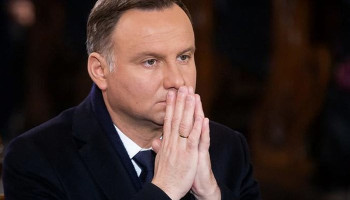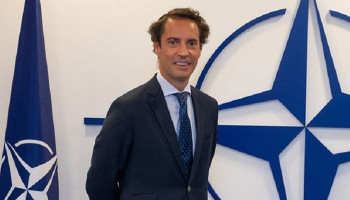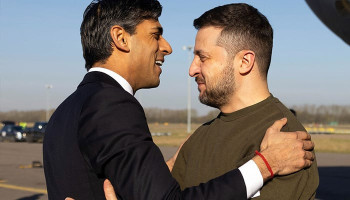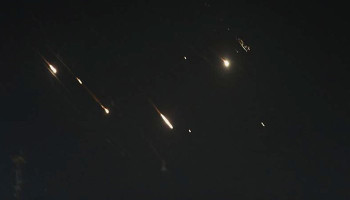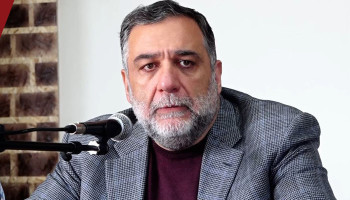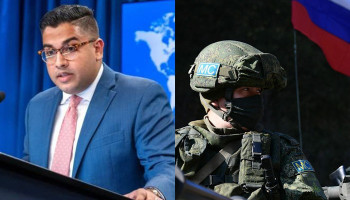EU ready to retaliate against US sanctions on Russia
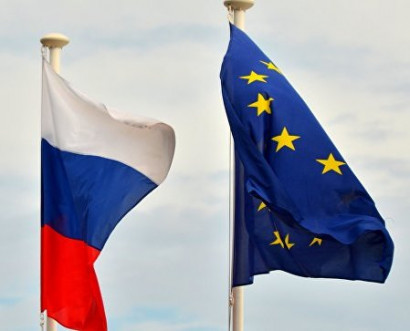 Brussels is preparing to retaliate against the US if Washington pushes ahead with far-reaching ne w sanctions on Russia that hit European companies.Jean-Claude Juncker, the European Commission president, has called for an urgent review of how Brussels should respond if Europe’s energy companies or other businesses are targeted by sanctions under discussion in the US Congress. According to a note prepared for a commission meeting on Wednesday, and seen by the Financial Times, Brussels “should stand ready to act within days” if the US measures were “adopted without EU concerns being taken into account”. US lawmakers reached an agreement at the weekend for sweeping new sanctions to be levied against Russia as Washington seeks to punish Moscow for its reported meddling in last year’s election. The House is expected to vote on Tuesday on the legislation, which will be imposed not just on Russia but also on Iran and North Korea. An earlier version of the bill was passed in the House by a vote of 97-2 in June. However, that legislation concerned only Moscow and Tehran, forcing legislators to postpone the bill’s passage as they negotiated the additional sanctions for Pyongyang. A presidential veto on the Russian sanctions bill would encounter strong resistance in Congress, with Republicans and Democrats both backing the legislation in equal measure, particularly as questions remain about interaction between top Trump aides and Moscow during last year’s election. Sarah Huckabee Sanders, the White House press secretary, announced on Sunday that the administration supported the new language of the bill and suggested that President Donald Trump would sign it. “The administration is supportive of being tough on Russia, particularly in putting these sanctions in place,” Ms Huckabee Sanders told ABC News. “The original piece of legislation was poorly written but we were able to work with the House and Senate. And the administration is happy with the ability to do that and make those changes that were necessary. And we support where the legislation is now.” The note says that Brussels’ “primary focus” should be on seeking “a public or written reassurance” from the Trump administration that it will not apply the new sanctions in a way that targets EU interests. Other options set out in the EU commission note include using European law to prevent the US measures from being “recognised or enforceable” in Europe, and preparing “WTO-compliant retaliatory measures”. The moves reflect deep concerns that the measures could hit European energy companies involved in Russia-related projects, including those engaged in the Nord Stream 2 initiative to build additional undersea natural gas pipelines between Russia and Germany. The Nord Stream 2 project, which is strongly backed by Germany, is controversial within the EU, where it has aroused strong opposition from Poland and many other central and eastern European countries concerned that it will increase energy dependence on Russia. But Brussels is set to argue that the potential economic fallout for Europe from the planned US sanctions stretches far beyond that one project, warning that they could hit the “maintenance and upgrade” of pipelines in Russia that feed gas into Ukraine, as well as pipeline projects in the Caspian region and the development of a gasfield off the coast of Egypt. In addition, the note warns, “the measures could impact a potentially large number of European companies doing legitimate business under EU measures with Russian entities in the railways, financial, shipping or mining sectors, among others.” The preparations in Brussels also reflect mounting EU frustration with unilateral economic sabre-rattling from Washington. Mr Juncker warned the US this month that Brussels would swiftly retaliate if the Trump administration delivered on threats to impose punitive tariffs on European steel. US energy companies have also spoken out against the sanctions legislation, saying it will hurt US business interests to the benefit of Russian competitors. It is unclear whether Brussels’ planned response will affect the White House’s thinking on the bill. This week, the Senate and House intelligence committees are expected to hear testimony from Mr Trump’s son-in-law, Jared Kushner, now a top White House aide, about meetings he took last year with Russia’s ambassador to the US, a senior Russian state banking official, and the Russian lawyer Natalia Veselnitskaya. Mr Trump’s eldest son, Donald Trump Jr, and former campaign manager, Paul Manafort, have also agreed to speak to Senate investigators behind closed doors about their meetings with Russian officials. The dates for those private hearings have not been set. Mr Trump has denied that he or anyone on his campaign colluded with Moscow during the election, dismissing the current FBI and congressional investigations as a “witch hunt”. On Sunday, Anthony Scaramucci, the president’s newly appointed communications director, told CNN that Mr Trump was still doubtful that Moscow had meddled in the US election and that he believed Russia would have done a better job covering its tracks if it had actually been behind the hack. “If the Russians actually hacked [the election] and spilled out those emails, you would have never seen it,” Mr Scaramucci said the president told him. “You would have never had any evidence of them. Meaning that they’re super-confident in their deception skills and hacking.” He said the president still had not reached a conclusion on whether Russia was responsible for meddling in the election. “There’s a lot of misinformation out there . . . the information isn’t on the table yet,” he said. Under the new sanctions bill, Mr Trump would no longer be allowed to lift sanctions against Russia, Iran or North Korea unilaterally. Instead, he would need to provide a written letter to Congress explaining why he wanted to lift sanctions, after which Congress would have 30 days to consider whether it wants to honour the president’s request. Until now, the decision to lift sanctions levelled by the executive branch has resided solely with the White House. |











